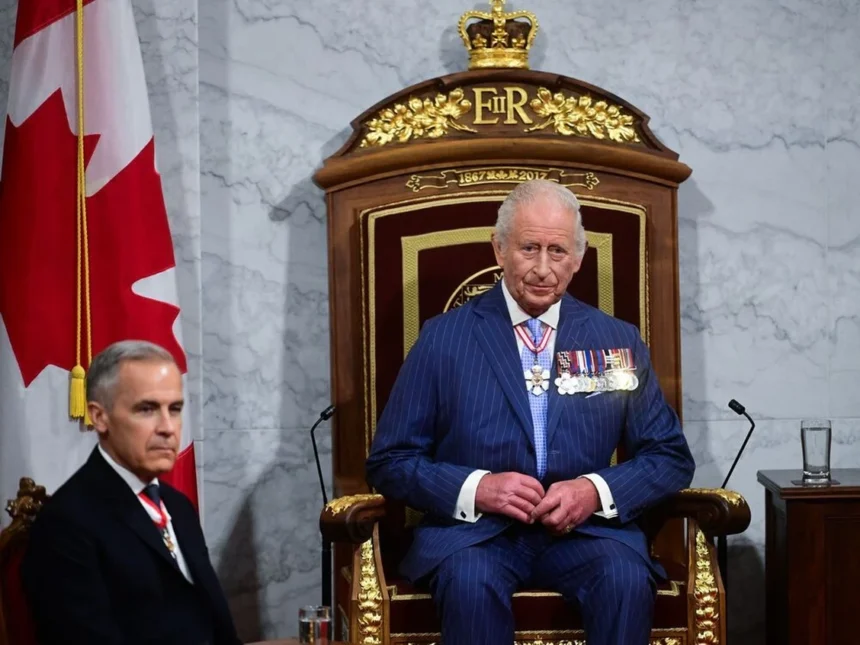The Canadian government, in a landmark policy shift Tuesday, has announced Canada’s new immigration cap, slashing the total number of temporary foreign workers and international students’ visas to less than 5% of its population by 2027.
This major move, unveiled during King Charles III’s address at the opening of Canada’s 45th Parliament, aims to “restore balance” to the country’s immigration system and rebuild public trust.
“Canada’s immigration system has long been a source of pride for Canadians and of dynamism for the economy. The Government is dedicated to rebuilding the trust of Canadians in immigration by restoring balance to the system,” Britain’s King Charles, who doubles as Canada’s Head of State said, in his ‘throne speech’, monitored by Pan-Atlantic Kompass during a live broadcast.
The Canadian Prime Minister Mark Carney, sat next to King Charles as he delivered his speech to members of Parliament at the Senate of Canada in Capital Ottawa, on Tuesday, touching on Canadian immigration, economy and geopolitics among other issues.
The monarch continued: “The Government will cap the total number of temporary foreign workers and international students to less than five percent of Canada’s population by 2027. By doing this, the Government will attract the best talent in the world to build our economy, while sending a clear message to Canadians working abroad that there is no better time to come home.”
For Nigerians and other Africans, who have been among the top contributors to Canada’s international student population, the Canada’s new immigration cap and policy change could have far-reaching implications.
In 2023, Canada issued 682,889 study permits, with a significant number granted to Nigerian applicants. However, under the new plan, estimates show that the number of international students is expected to decrease to 305,900 annually from 2025 through 2027.
Similarly, the Temporary Foreign Worker Program will see a reduction, stabilizing at 82,000 permits annually during the same period.
These reductions are part of Canada’s broader strategy to address domestic challenges such as housing shortages and strained public services.
By limiting the influx of temporary residents, the government said it aims to alleviate pressure on infrastructure and ensure sustainable growth.
The Canada’s new immigration cap also reflects a growing sentiment within Canada to prioritize permanent residency pathways over temporary ones.
By capping temporary admissions, the government seeks to encourage a more stable and long-term integration of immigrants into Canadian society.
For prospective Nigerian and African students and workers, this means increased competition for limited spots and a need for strategic planning.
Applicants may need to demonstrate higher qualifications, secure admissions to recognized institutions, or align their skills with sectors experiencing labor shortages to enhance their chances.





